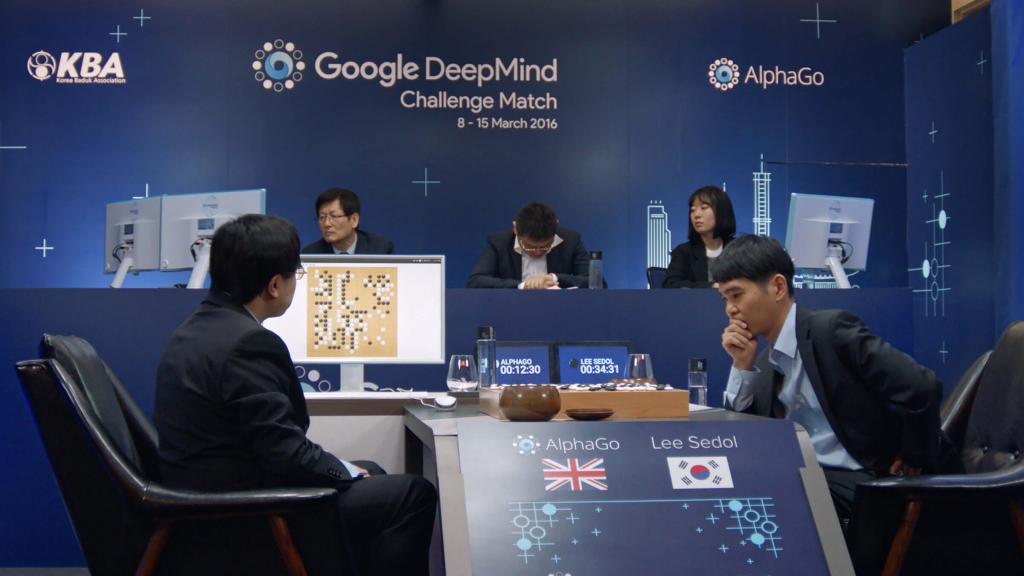"These are technologies which can behave like geniuses in messy contexts."
What the Alpha Go win meant for the world, with Co-curator of AI: More than Human, Suzanne Livingston.

In 2016 Alpha Go became the first computer program to defeat a Go world champion. What’s the significance of this?
AlphaGo’s victory against Lee Sedol – the Go Master – was a major breakthrough. It was ahead of its time in the sense that people did not feel that AI capability had yet reached that level, but it was also ahead of its time because of the extraordinary creativity and originality the system showed in its moves – moves that won the match.
"AI is developing a different kind of intelligence to us...and that kind of intelligence will go on to shape us too."
Does this mean that AI has become as smart as humans?
I don’t think we are comparing like for like – though that is a big topic in itself. In some areas, AI is already smarter than humans. It can work at much greater scale than we can. However, in other areas, it is less smart because it doesn’t yet necessarily have the delicate discernment or judgement, that we associate with humans (humour, irony etc) but perhaps these will be learnt? I think we have to be careful that we don’t view human intelligence and artificial intelligence as the same thing. AI is developing a different kind of intelligence to us, though it may have originally been inspired by us, and that kind of intelligence will go on to shape us too. For me, difference is a good thing. We need more different types of intelligence in the world.
How have professional players reacted to the success of Alpha Go?
With enthusiasm and celebration oftentimes. In recognition of its brilliance, AlphaGo received prestigious awards from Go player associations in Korea. There has been great excitement about the new areas of play AlphaGo opened up. AlphaGo as a principle or research goal isn’t entirely new though. There is a long history of computer-based opponents in games, particularly chess. They bring new challenges, levels and creativity to the game.
"This kind of intelligence which evolves and develops itself from scratch, without guidance, is quite amazing."
What’s the lasting impact of this development?
I think what AlphaGo went on to enable, in terms of further developments, is just as impressive at the original breakthrough. Since then, DeepMind, the creators of AlphaGo, have gone to develop AlphaZero – a system which can teach itself superhuman skills in playing Go, shogi and chess without being told the rules in advance. AlphaZero has also been superseded by AlphaMuZero which can achieve more again, by teaching itself those three games as well as a number of other visually complex Atari games. This kind of intelligence which evolves and develops itself from scratch, without guidance, is quite amazing. It is the defining characteristic of artificial intelligence. It points the way to artificial general intelligence – ubiquitous superintelligence – and that is another huge topic in itself!
It took years for Alpha Go to get to this point, yet it’s successor Alpha Zero can grasp a game incredibly quickly. What does that say about the way AI evolves?
Good question – the technology is getting better and better at working in the dark and finding solutions without being told what to look for. There are aspects of DeepMind’s technological approach – reinforcement learning, Monte Carlo tree search and lookahead tree search, which make rapid and ever deeper sense of a search space – which really define these breakthroughs.
Of course, some might find this level and strength of intelligence scary but it certainly seems to me that we need these kind of massively intelligent systems in the world, because we are facing problems so big that we simply cannot solve them on our own. We do need to be very wary of our role, involvement and participation in them though. Are we allowing AI to have its best transformational effect on the world, or are we forcing it into meeting darker objectives?
"These are technologies which can behave like geniuses in messy contexts, and there is plenty of need for those in the real world."
What could this technology be used for next?
Fundamentally, these are technologies which can behave like geniuses in messy contexts, and there is plenty of need for those in the real world. DeepMind has gone on to develop AlphaFold which can model the structure of the proteins in our body – something which has previously been very hard to do. If we can understand the structure of the millions of unknown proteins, then we are on our way to tackling disease, discovering new medicines and understanding more about the basic building blocks of life. These technologies have the potential to unlock a wealth of frontiers for us and have been helping scientists unlock the key to Covid 19. By making the invisible visible at such scale, we will have the means to crack some of the biggest problems of all, in areas like health, bioengineering and beyond.
